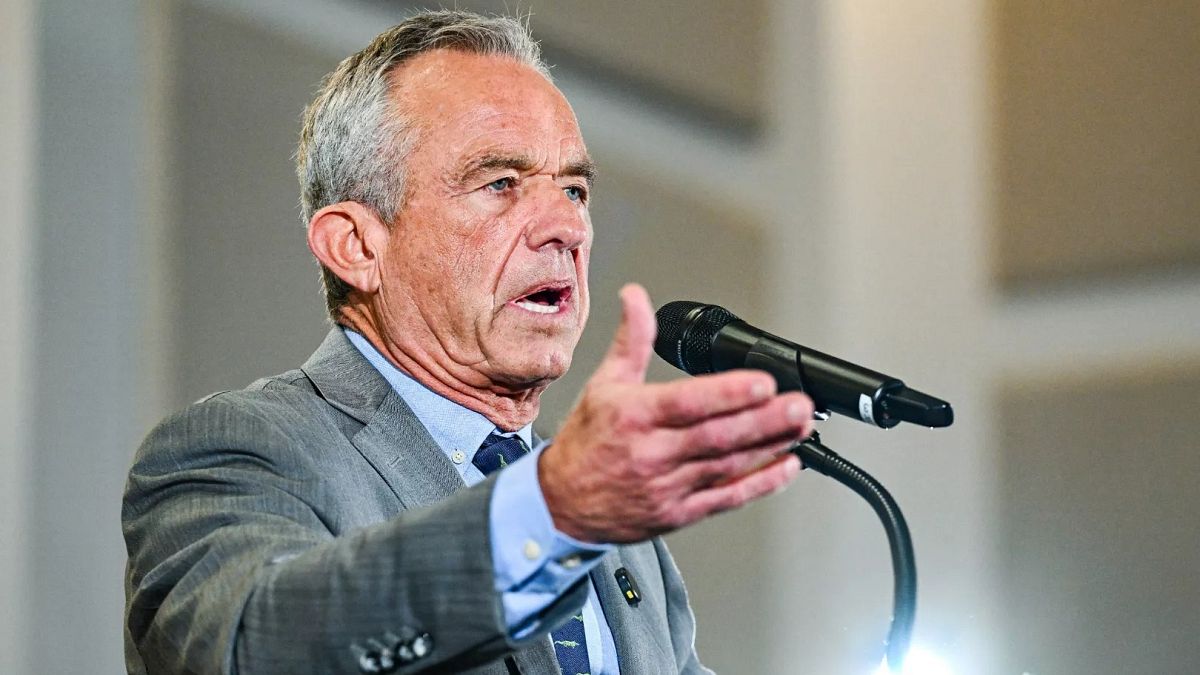Health
Trump Administration Pushes for Swift Approval of Psychedelic Therapy

The administration of former President Donald Trump is advocating for the approval of psychedelic therapies, a move that has garnered both excitement and skepticism within the medical community. Robert F. Kennedy Jr., the U.S. Secretary of Health, announced his ambition to have these therapies approved within a year, a timeline that has surprised even the most ardent supporters of psychedelic treatment. For decades, proponents have argued that substances such as LSD and ecstasy can provide relief for patients suffering from difficult-to-treat conditions, including depression and trauma.
In a statement to Congress, Kennedy expressed optimism about the therapeutic potential of psychedelics. “This line of therapeutics has tremendous advantage if given in a clinical setting and we are working very hard to make sure that happens within 12 months,” he remarked. This shift in policy from the Trump administration has ignited hope among advocates, although it has also raised concerns about the potential ramifications of such a rapid approval process.
FDA’s Reassessment of MDMA and Psychedelics
Under the previous administration, the Food and Drug Administration (FDA) rejected MDMA as a treatment for post-traumatic stress disorder (PTSD), citing flawed data and insufficient research. This decision was a significant setback for advocates like Rick Doblin, who has championed the medical use of MDMA since the 1980s. The FDA called for further studies, which could take several years to complete, delaying the potential for the first U.S. approval of a psychedelic for medical use.
Recent indications suggest that the FDA may be prepared to reconsider its stance. Marty Makary, the FDA chief who reports to Kennedy, has characterized the evaluation of MDMA and other psychedelics as “a top priority.” He has announced initiatives aimed at expediting the approval process, which could reduce review times from six months or more to as little as one month. Furthermore, Makary has proposed greater flexibility regarding the requirements for certain drugs, potentially allowing for the bypass of rigorous controlled studies that are typically essential for high-quality medical research.
Concerns Over the Hasty Push for Approval
While some view the administration’s actions as promising, concerns linger regarding the scientific rigor of the approval process. Experts like Philip Corlett, a psychiatric researcher at Yale University, caution that bypassing established clinical trial protocols could ultimately harm the field and patients. “If Kennedy and the new administration are serious about this work, there are things they could do to shepherd it into reality by meeting the benchmarks of medical science,” he stated. “I just don’t think that’s going to happen.”
In addition, the administration has recently hired several staff members with ties to the psychedelic movement. Greg Ferenstein, a fellow at the Reason Foundation, noted that these developments signal an acknowledgment of the potential benefits of psychedelics.
The ongoing interest in psychedelics is reflected in initiatives across various U.S. agencies. Nora Volkow, director of the U.S. National Institute on Drug Abuse, confirmed her agency’s commitment to exploring the therapeutic potential of these substances. The agency is funding a U.S. drugmaker’s efforts to develop a safer, synthetic version of ibogaine, a powerful psychedelic derived from a shrub native to West Africa. Furthermore, Texas has launched a $50 million trial aimed at assessing ibogaine as a treatment for opioid addiction, PTSD, and other conditions.
As the landscape surrounding psychedelic therapy evolves, the balance between expedited approval and maintaining rigorous scientific standards remains a central concern. The coming months will be crucial in determining how the administration’s push for psychedelic therapy unfolds and what implications it may have for patients and the medical community at large.
-

 Top Stories3 months ago
Top Stories3 months agoTributes Surge for 9-Year-Old Leon Briody After Cancer Battle
-

 Entertainment4 months ago
Entertainment4 months agoAimee Osbourne Joins Family for Emotional Tribute to Ozzy
-

 Politics4 months ago
Politics4 months agoDanny Healy-Rae Considers Complaint After Altercation with Garda
-

 Top Stories4 months ago
Top Stories4 months agoIreland Enjoys Summer Heat as Hurricane Erin Approaches Atlantic
-

 World5 months ago
World5 months agoHawaii Commemorates 80 Years Since Hiroshima Bombing with Ceremony
-

 Top Stories3 months ago
Top Stories3 months agoNewcastle West Woman Patricia Foley Found Safe After Urgent Search
-

 Top Stories5 months ago
Top Stories5 months agoFianna Fáil TDs Urgently Consider Maire Geoghegan-Quinn for Presidency
-

 World5 months ago
World5 months agoCouple Convicted of Murdering Two-Year-Old Grandson in Wales
-

 World5 months ago
World5 months agoGaza Aid Distribution Tragedy: 20 Killed Amid Ongoing Violence
-

 World5 months ago
World5 months agoAristocrat Constance Marten and Partner Convicted of Infant Murder
-

 Top Stories4 months ago
Top Stories4 months agoClimbing Errigal: A Must-Do Summer Adventure in Donegal
-

 Top Stories4 months ago
Top Stories4 months agoHike Donegal’s Errigal Mountain NOW for Unforgettable Summer Views









